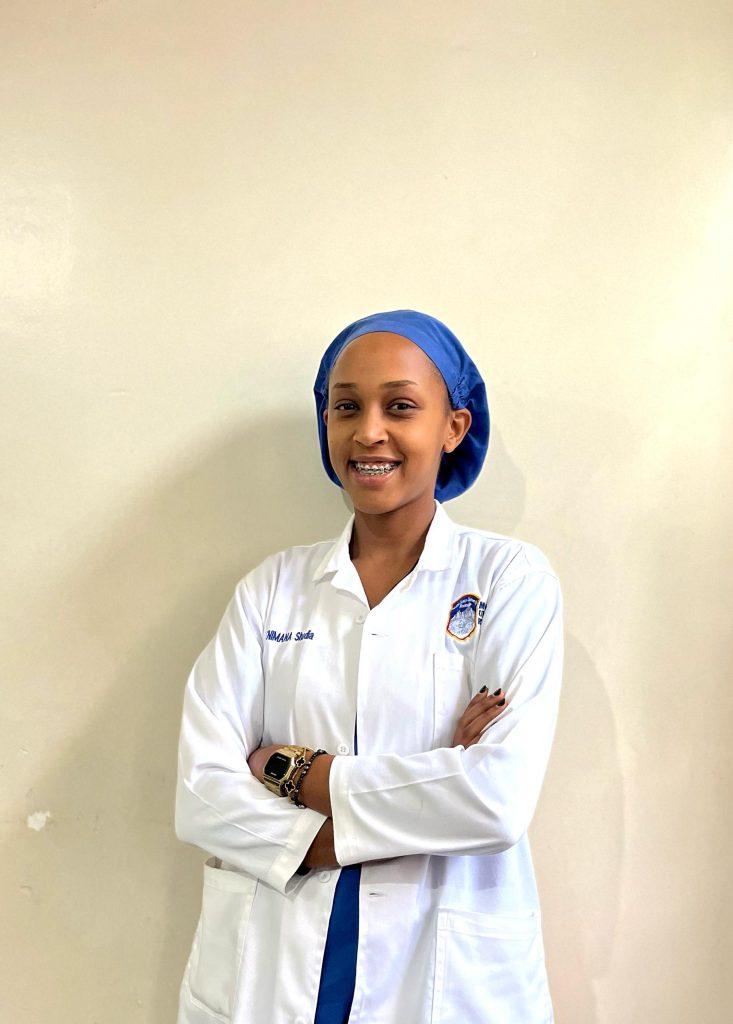Women pursuing careers in Science, Technology, Engineering, and Mathematics (STEM) face significant challenges, ranging from societal stereotypes to limited encouragement.
Jocelyne Uwambajimana, a 13-year professional experience nursing lecturer at Mount Kigali University (MKU), believes women are the key to overcoming these barriers.
“Women must believe in themselves and understand that they can achieve success independently,” Uwambajimana told MKU Magazine. “Numerous successful women have already paved the way in STEM careers. Self-confidence and self-esteem are essential for women and girls who want independence rather than reliance on others.”
Uwambajimana’s perspective resonates strongly with students at MKU who are navigating their journeys in STEM fields.
Diane Iradukunda Umutoni, a nursing graduate student at MKU, explained that her inspiration to pursue healthcare sciences came from influential female nurses such as Mary Eliza Mahoney, the first African American licensed nurse known for fighting racial inequalities. “Nursing, as part of the STEM field, allows me to combine medical knowledge, creative problem-solving, and compassionate caregiving,” Iradukunda said.
Similarly, Leah Kamaliza, MKU’s Social Welfare Minister and a nursing student, described her entry into STEM as sparked by curiosity about the underrepresentation of women in her chosen field. Encouraged by her mother, she chose to follow her passion and defy prevailing stereotypes.

Kamaliza Leah, social welfare minister at Mount Kigali University, reveals that her mother played a crucial role in inspiring her to pursue a STEM career.
“My journey into STEM started from a natural curiosity about how things work in health sciences, combined with my passion. My mother inspired me greatly to pursue my bachelor’s degree in nursing,” Kamaliza said.
Both Iradukunda and Kamaliza pointed out that societal and cultural expectations, particularly prevalent in African contexts, often discourage women from STEM careers. Challenges such as workplace biases, unequal opportunities, difficulty balancing professional and personal responsibilities, and insufficient encouragement from educators persistently hinder women’s progress.
To address these ongoing challenges, Uwambajimana and the students suggest implementing concrete solutions, such as mentorship programs that link female students to successful professionals in STEM for guidance and inspiration. They also advocate public awareness campaigns to challenge and dismantle gender stereotypes, gender-inclusive teaching practices, increased scholarships and funding specifically targeting women, and policies promoting equal representation of women in university faculties.
According to global data, women account for approximately 29 percent of scientific researchers worldwide. In Rwanda specifically, the Rwandan Association for Women in Science and Engineering reported in 2021 that women constituted 31.1 percent of the workforce in scientific and technical professions.
Despite evident progress, Uwambajimana insists that sustained collective effort from individuals, educational institutions, and policymakers remains crucial to empower more women to confidently enter and thrive in STEM fields.




